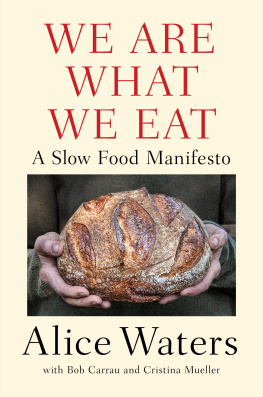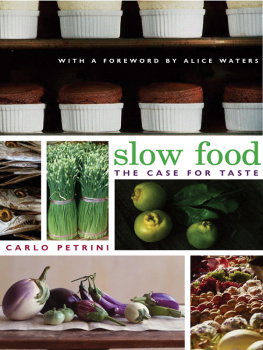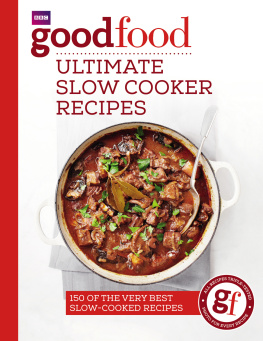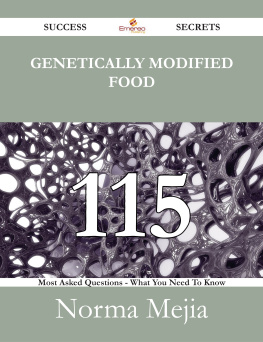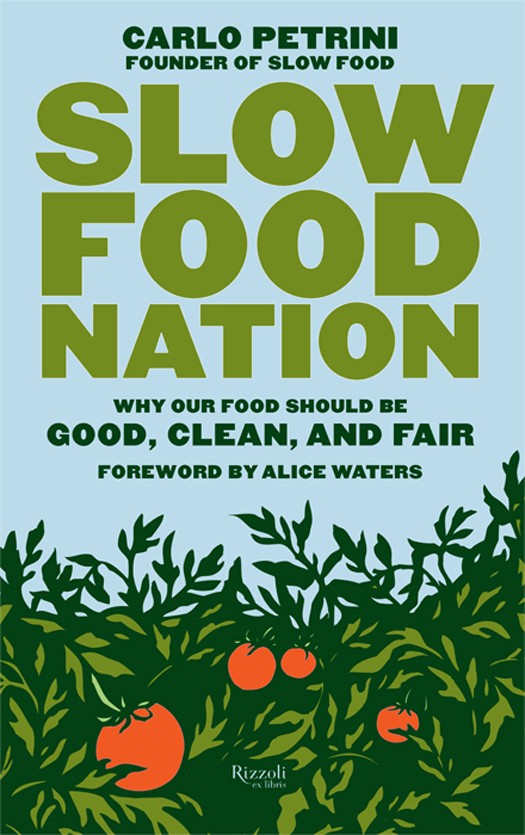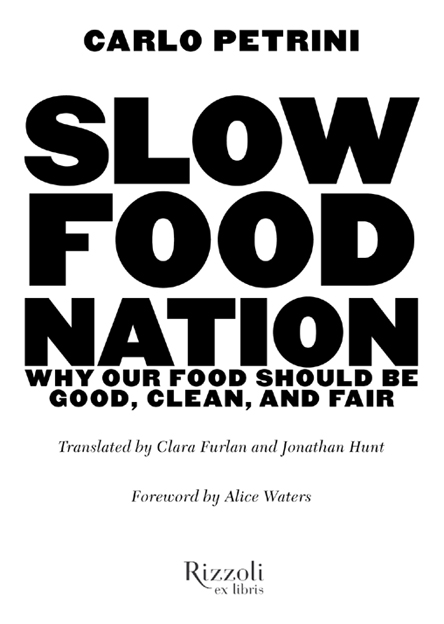First published in paperback in the United States of America in 2013 by
Rizzoli Ex Libris, an imprint of
Rizzoli International Publications, Inc.
300 Park Avenue South
New York, NY 10010
www.rizzoliusa.com
Originally published in Italian in 2005 as Buono, Pulito e Giusto by Gli struzzi Einaudi
2005 Slow Food Editore srl, Bra, Italy
This ebook edition 2013 Slow Food Editore srl, Bra, Italy
All rights reserved. No part of this publication may be reproduced, stored in a retrieval system, or transmitted in any form or by any means, electronic, mechanical, photocopying, recording, or otherwise, without prior consent of the publishers.
eISBN: 978-0-8478-4146-2
v3.1
The aims of this book are to develop ideas, raise awareness, and arouse passion. If those aims have been achieved, much of the merit will be due to Carlo Bogliotti, who in recent years has discussed these ideas with me and rendered valuable assistance in the drafting of the text. I would like to express my gratitude to him for his generous help.
A worthy successor to Brillat-Savarin, Carlo Petrini has reinvented the idea of gastronomy for the twenty-first century. An important book.
Michael Pollan, author of The Omnivores Dilemma
Carlo Petrini is one of the most important thinkers of our time, not only about what to eat, but also about how to live. This book is essential reading for anyone who cares about social justice, the environment, and the fundamentals of a good meal.
Eric Schlosser, author of Fast Food Nation
FOREWORD
Alice Waters
When my friends and I opened the doors of our new restaurant Chez Panisse in 1971, we thought of ourselves as agents of seduction whose mission it was to change the way people ate. We were reacting against the uniformity and blandness of the food of the day. We soon discovered that the best-tasting food came from local farmers, ranchers, foragers, and fishermen who were committed to sound and sustainable practices. Years later, meeting Carlo Petrini for the first time, I realized that we had been a Slow Food restaurant from the start. Like Carlo, we were trying to connect pleasure and politicsby delighting our customers we could get them to pay attention to the politics of food.
Carlo Petrini is the founder of the Slow Food movement and an astonishing visionary. Unlike me, he grew up in a part of the world with a deeply traditional way of eating and living, where he learned an abiding love for the simple, life-affirming pleasures of the table. When he saw this way of eating in Italy start to disappear, he decided to do something about it. Slow Food began as an ad hoc protest against fast-food restaurants in Rome, but it has grown into an international movement built on the principles he sets forth in these pages.
Carlo has put big ideas together in sparkling, strong language that has survived translation from his robust Italian and that breathes easily and naturally. His voice is, above all, that of a person whose senses are expertly attuned, and whose mind is in constant exercise. It is a voice that is also irresistibly engaging. His argument has both the warm familial resonance of your favorite uncles storytelling and the bracing intellectual rigor of your most inspiring teacher; its tonenow high, now low; now dry, now drollis that of the calm and hopeful voice of reason itself. You will like this voice.
Most Americans are put off by the word gastronomy; it evokes either gastroenterology or, at best, gourmet pretention. But Carlo heroically appropriates and redefines the word. By gastronomy he wants us to understand a new science, which he defines as the study of our food and all the natural and manmade systems that produce it. It is therefore nothing less than the study of our place on earth and our survival as a species. It is a science far more comprehensive than any of the traditional social sciences. Indeed, because gastronomy relates to the study of every subject taught in school, it can organize and enliven the curriculum as no other subject can. And if economics is the dismal science, gastronomy is certainly the cheerful onebecause of its assertion of a universal right to pleasure.
The vision he sets forth in these pages is of the planet as an ark shared by all its inhabitants. The lifeline with which Carlo would bring us aboard is woven from three conceptual strands. He argues that, at every level, our food supply must meet the three criteria of quality, purity, and justice. Our food must be buono, pulito, e giustowords that resonate with more solemnity in Italian than do their literal English counterparts. Our food should be good, and tasty to eat; it should be clean, produced in ways that are humane and environmentally sound; and the system by which our food is provided must be economically and socially fair to all who labor in it. Carlos great insight is that when we seek out food that meets these criteria, we are no longer mere consumers but co-producers, who are bearing our fair share of the costs of producing good food and creating responsible communities.
Carlos argument moves gracefully (not surprisingly, he is a very good dancer) in a way that transforms his curiosity, delight, and outrage into something like a cross between a tango and a treasure hunt. Carlo persuades us that it is the education of our senses that allows us to experience the beauty and meaning around us in the world. Few thinkers have been able to convey the delight of enlightenment so well. Carlo argues that such enlightenment can be available to every person on the planet. Thanks to his generosity and humanity and his disarming charm, it is an argument that never becomes hortatory or strident. Above all, it is the argument I have been waiting for, an irrefutable demonstration that making the right decisions about food can change the world.
INTRODUCTION
There are still people who dismiss gastronomes like me as a bunch of selfish gluttons who couldnt care less about the world around them. They misunderstand: it is precisely the gastronomes skillswhich range from a finely tuned sense of taste (a skill that has deep implications for our odorless and tasteless world) to knowledge of food productionthat make him care very much about the world around him, make him feel that he is in a sense a co-producer of food, a participant in a shared destiny.
This common destiny becomes all the clearer if we bear in mind that all human beings live on the same earth and take their nourishment from it. So this book will begin with a survey of the worlds present perilous state of health, which is mainly due to the systems by which food is produced and consumed.
So, too, the new gastronome must assert his expertise in the analysis of these systems. Drawing on his long experience in the quest for the good, for culinary pleasure, he discovers that there is also a different world of production and consumption, parallel to the currently dominant one, which contains the seeds of a better global system.
However, gastronomic science and the skills that derive from it have always been misunderstood, maligned, and marginalized for a variety of reasonsthis is partly the gastronomes own fault, as we shall see. So mere assertion will not be sufficient: we will have to redefine gastronomic science, give it the dignity it deserves, a new dignity. In attempting to do this in the next section of the bookan attempt that begins with a historical analysis and ends with a reasoned definition of a new gastronomythe gastronome will cover the whole range of disciplines in this complex subject. He will make no claim to omniscience; indeed, he will not hesitate to call on the aid of anyone who can help him.


